00:35
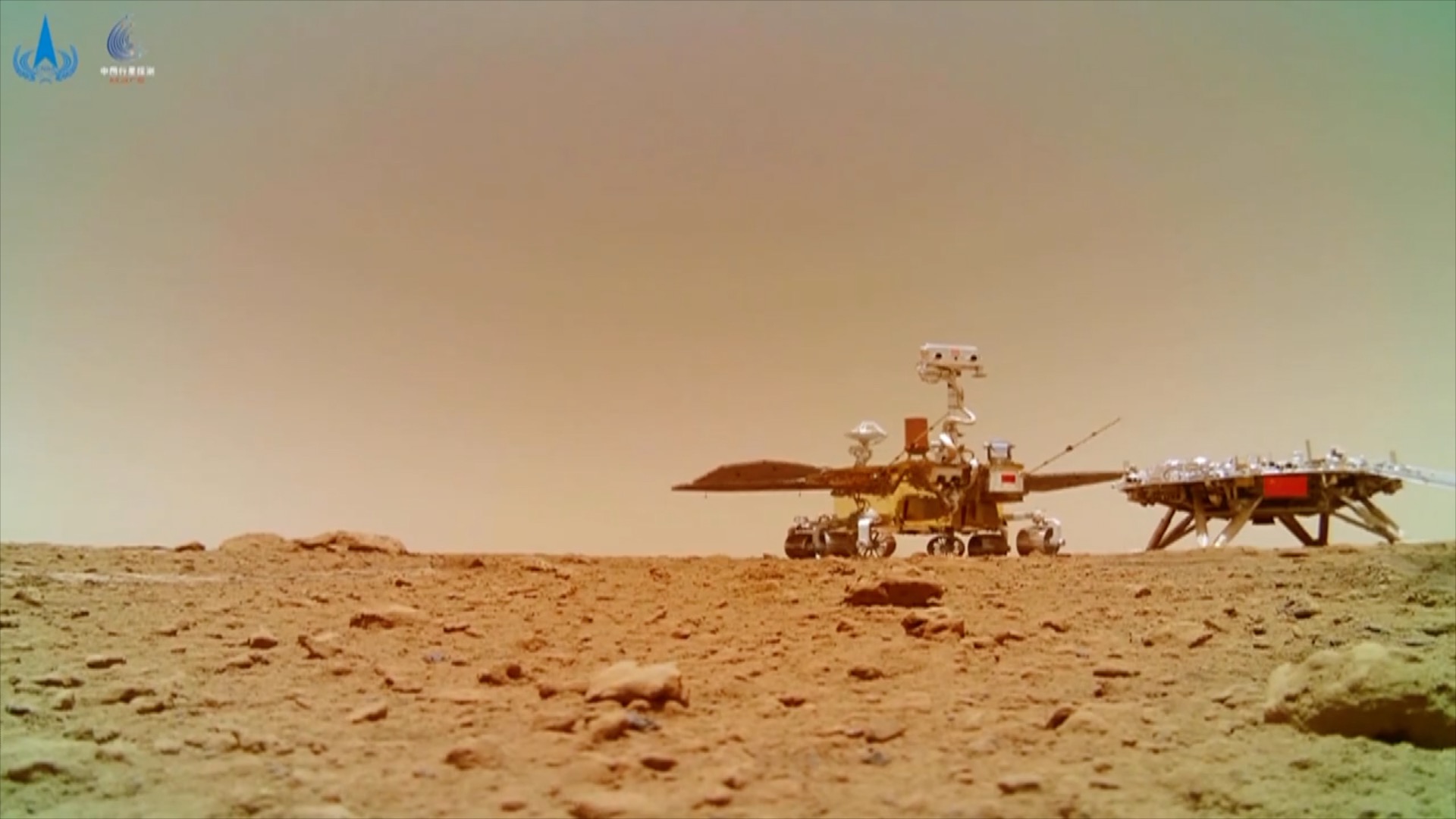
The China National Space Administration (CNSA) recently released new pictures from the Tianwen-1 mission with images of the Zhurong rover's inspection area on Mars taken by the orbiter and the rover's "selfies."
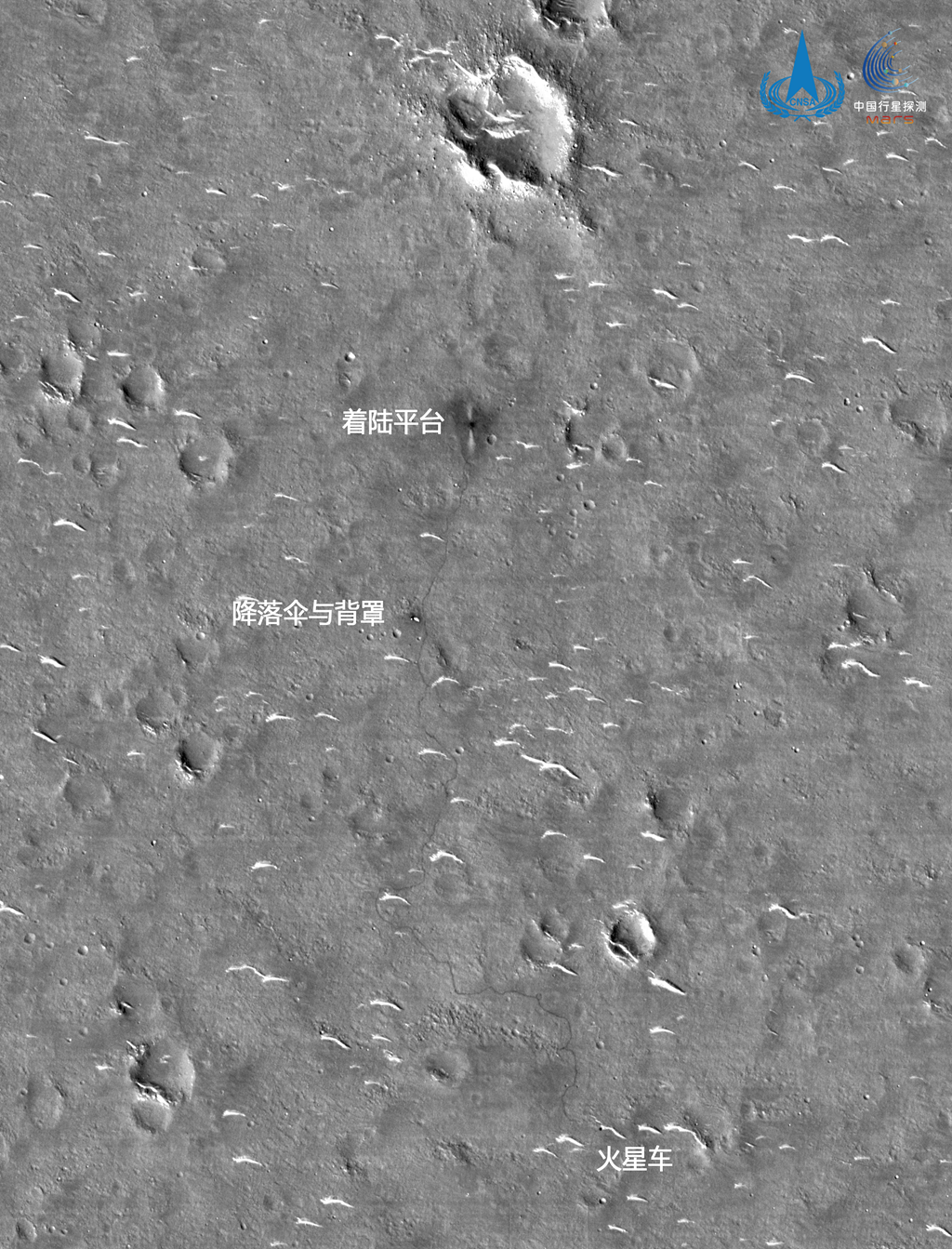
A picture taken by the orbiter of China's Tianwen-1 Mars mission with a resolution of 0.5 meters. /CNSA
A picture taken by the orbiter of China's Tianwen-1 Mars mission with a resolution of 0.5 meters. /CNSA
In the images of the red planet taken with a high resolution of 0.5 meters, the rover's traveling path can be clearly recognized.
As of Thursday, Zhurong has been working on the Martian surface for 306 Martian days, traveling a total of 1,784 meters. The orbiter, a relay satellite for the Mars mission, has been working in orbit for 609 days. Both units are in good condition.
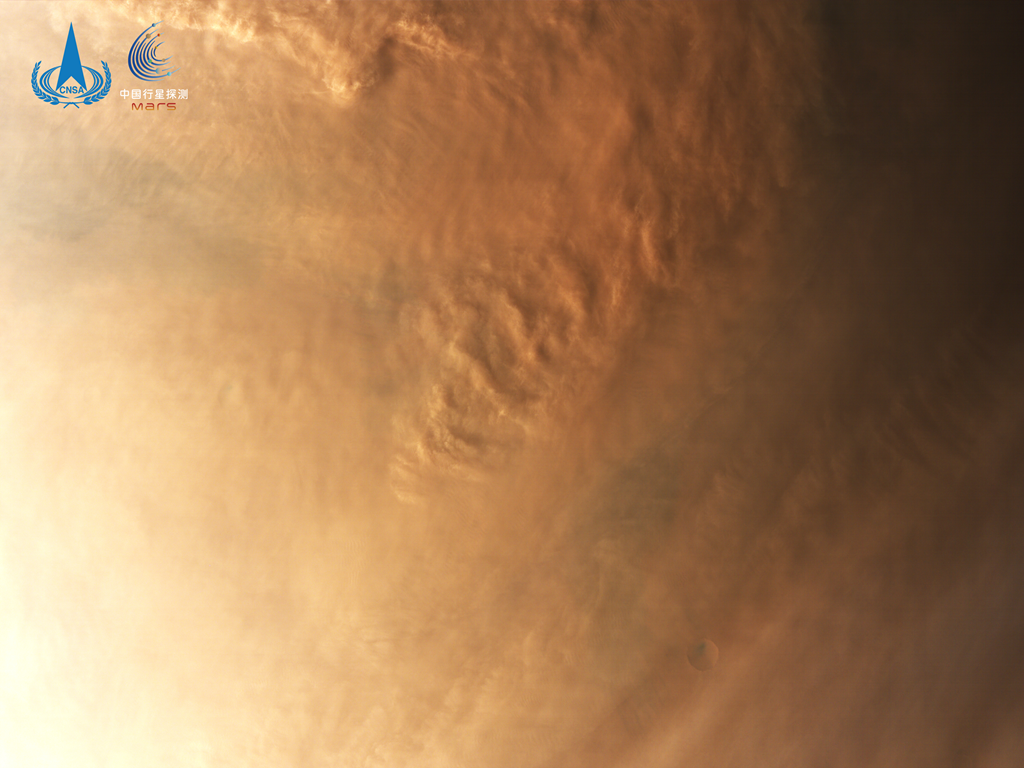
A picture taken by the orbiter of China's Tianwen-1 Mars mission. /CNSA
A picture taken by the orbiter of China's Tianwen-1 Mars mission. /CNSA
The orbiter has been carrying out remote sensing and capturing high-resolution images of Mars, focusing on geological and topographic units, including meteor craters, volcanos and canyons.
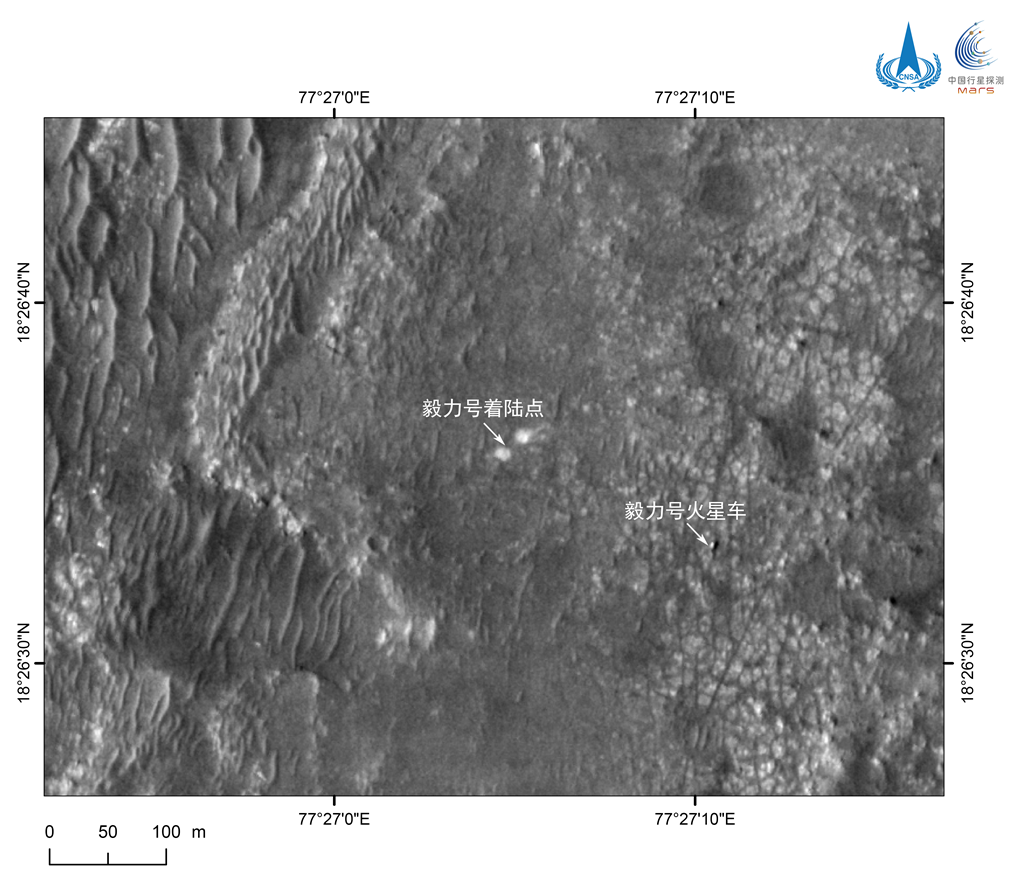
A picture taken by the orbiter of China's Tianwen-1 Mars mission shows NASA's Mars rover Perseverance while imaging the Jezero Crater, about 200 meters southeast of Perseverance's landing site on Mars, March 7, 2022. /CNSA
A picture taken by the orbiter of China's Tianwen-1 Mars mission shows NASA's Mars rover Perseverance while imaging the Jezero Crater, about 200 meters southeast of Perseverance's landing site on Mars, March 7, 2022. /CNSA
On March 7, the orbiter took a picture of NASA's Mars rover Perseverance while imaging the Jezero crater, which is about 200 meters southeast of Perseverance's landing site.
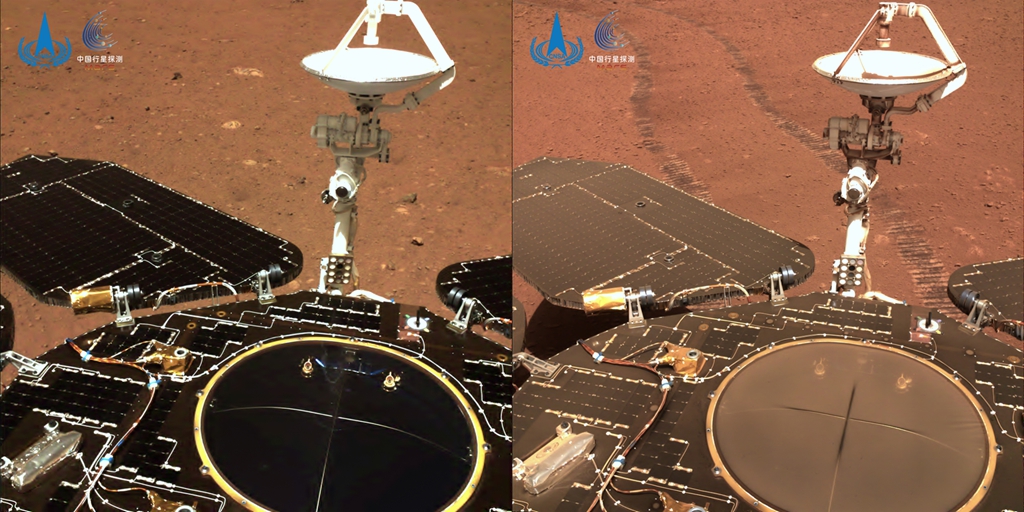
Pictures show the Zhurong rover on May 19, 2021 (L), the fifth Martian day of landing, and on January 22, 2022 (R), the 247th Martian day of landing. /CNSA
Pictures show the Zhurong rover on May 19, 2021 (L), the fifth Martian day of landing, and on January 22, 2022 (R), the 247th Martian day of landing. /CNSA
The Zhurong rover also sent back "selfies" from the surface of Mars. A thin layer of dust can be seen on the surface of the rover compared to images taken shortly after the landing.
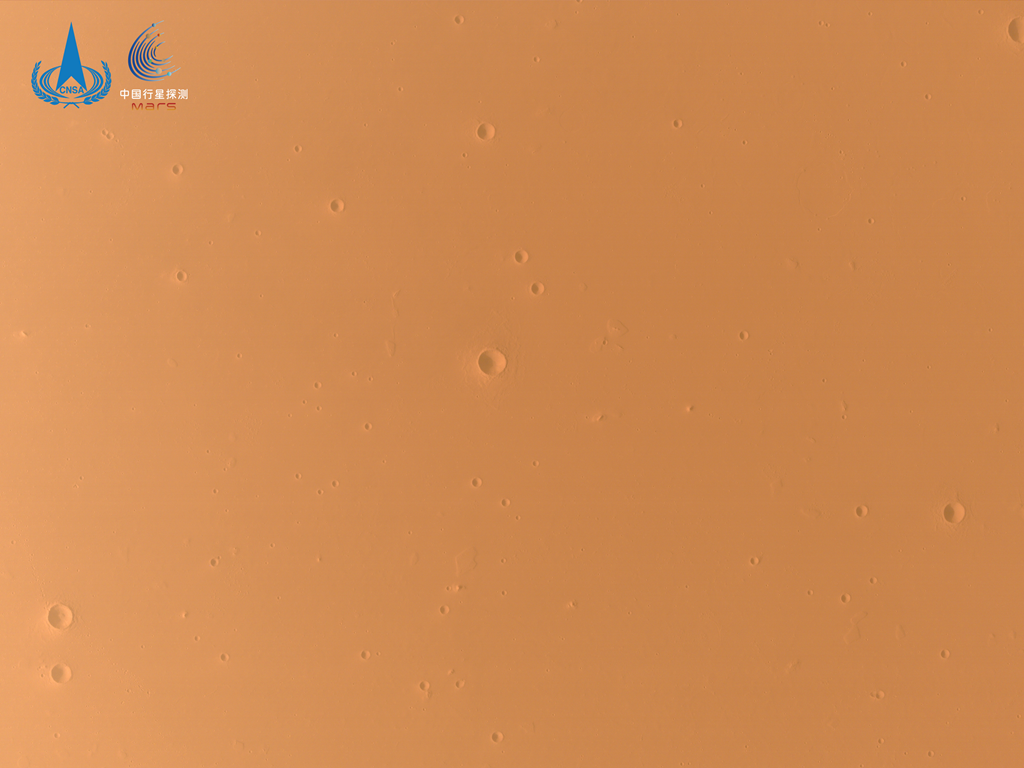
Image taken by the orbiter of China's Tianwen-1 Mars mission. /CNSA
Image taken by the orbiter of China's Tianwen-1 Mars mission. /CNSA
Dust storms on the red planet can directly affect the energy acquisition of Mars rovers. In order to cope with the dust, the solar wing of Zhurong has a special design, and various measures can be taken in case the power generation efficiency decreases due to sand and dust on the solar wing.
The solar power being generated is now sufficient for Zhurong to continue its exploration and the standby measures have not been adopted, China Media Group reported.

